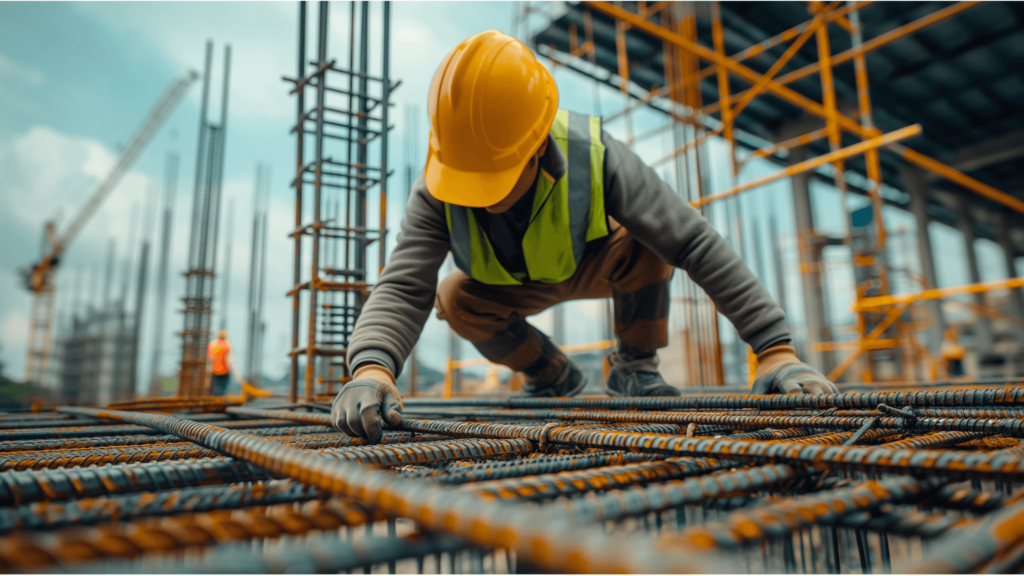In the construction industry, where the pressures of work are intense, mental health issues are widespread, leading to one of the highest suicide rates of any industry. Yet this issue remains under-addressed, making trade unions even more crucial in advocating for workers’ mental well-being and offering support where employers may fall short. From creating better working conditions to providing access to mental health services and increasing job security, unions have stepped up where employers have fallen short.
Mental health in construction
The construction industry is facing a severe mental health crisis, with workers experiencing high levels of stress, depression, anxiety, and substance abuse. A staggering 60% of construction workers have reported suffering from a mental health issue at some point during their careers. A combination of factors unique to the industry fuels this crisis.
Drug and alcohol addiction
Substance abuse is alarmingly prevalent among construction workers, with nearly half of apprentices reporting struggles with drug or alcohol addiction. The physical demands of the job often lead to injuries, for which opioids are usually the first line of defense.
In addition, mental health is often not prioritized, leading to a high incidence of depression and anxiety. This combination has contributed to a high incidence of opioid addiction, with construction workers being significantly more likely to die from an opioid overdose than workers in other industries.
High suicide rates
Construction workers are four times more likely to die by suicide than those in other professions, making this industry one of the most dangerous in terms of mental health. The combination of long hours, physical strain, and job insecurity contribute to this grim statistic.
Long work hours and high-stress environments
The demanding nature of construction work often results in long hours, leading to burnout and chronic stress. The pressure to meet tight deadlines and the physical demands of the job create a high-stress environment that exacerbates mental health issues.
Lack of job security
Many construction workers face job insecurity due to the industry’s cyclical nature. Financial instability adds another layer of stress, further impacting mental health. Even with industry improvements, employers have been slow to fully address these issues, leaving workers vulnerable.
Why construction culture can be toxic to men

The culture within the construction industry often discourages men from expressing vulnerability. The focus is usually solely on physical strength and endurance, leaving little room for addressing emotional or mental struggles. It’s an industry dominated by a “tough guy” mentality, where showing signs of emotional distress is often seen as a weakness. This culture not only stigmatizes mental health issues but also prevents workers from seeking the help they need.
In addition to this toxic culture, there is a lack of open communication about mental health issues. Workers are rarely encouraged to discuss their emotional well-being, leading to untreated mental health problems. This lack of dialogue perpetuates a cycle where mental health issues remain hidden and unresolved.
The role of trade unions in supporting mental health
Advocating for better working conditions
Where employers are failing, trade unions are stepping up. From advocating for safer and healthier working conditions to pushing for the inclusion of mental health protocols in safety standards, unions ensure employers comply with regulations designed to protect workers’ well-being. Unions also campaign for the provision of mental health resources, such as counseling services on construction sites.
Providing access to mental health services
One of the most significant contributions of trade unions is securing workers’ access to mental health services. Through collective bargaining, unions negotiate for Employee Assistance Programs (EAPs) that provide workers with the support they need to manage their mental health. These programs are vital in an industry where mental health issues are prevalent but often go untreated.
Campaigns and training initiatives
Unions play a key role in reducing the stigma associated with mental health issues through targeted campaigns and training programs. These initiatives help to create a more supportive environment where workers feel empowered to seek help. Training programs for peer support volunteers are particularly effective in providing on-site assistance to those in need.
Job security and financial support
Unions also help alleviate financial stress by advocating for job security measures, such as contract protections and stable employment. During layoffs or job transitions, unions provide critical support to workers, helping to mitigate the mental health impact of these stressful situations.
Bottom line
The mental health crisis in the construction industry is a complex issue that requires a comprehensive approach. Trade unions are at the forefront of efforts to address this crisis, advocating for better working conditions, providing access to mental health services, and challenging the toxic culture that discourages men from seeking help.
By supporting workers in these ways, unions play an essential role in promoting the physical and mental well-being of those who build our world.



